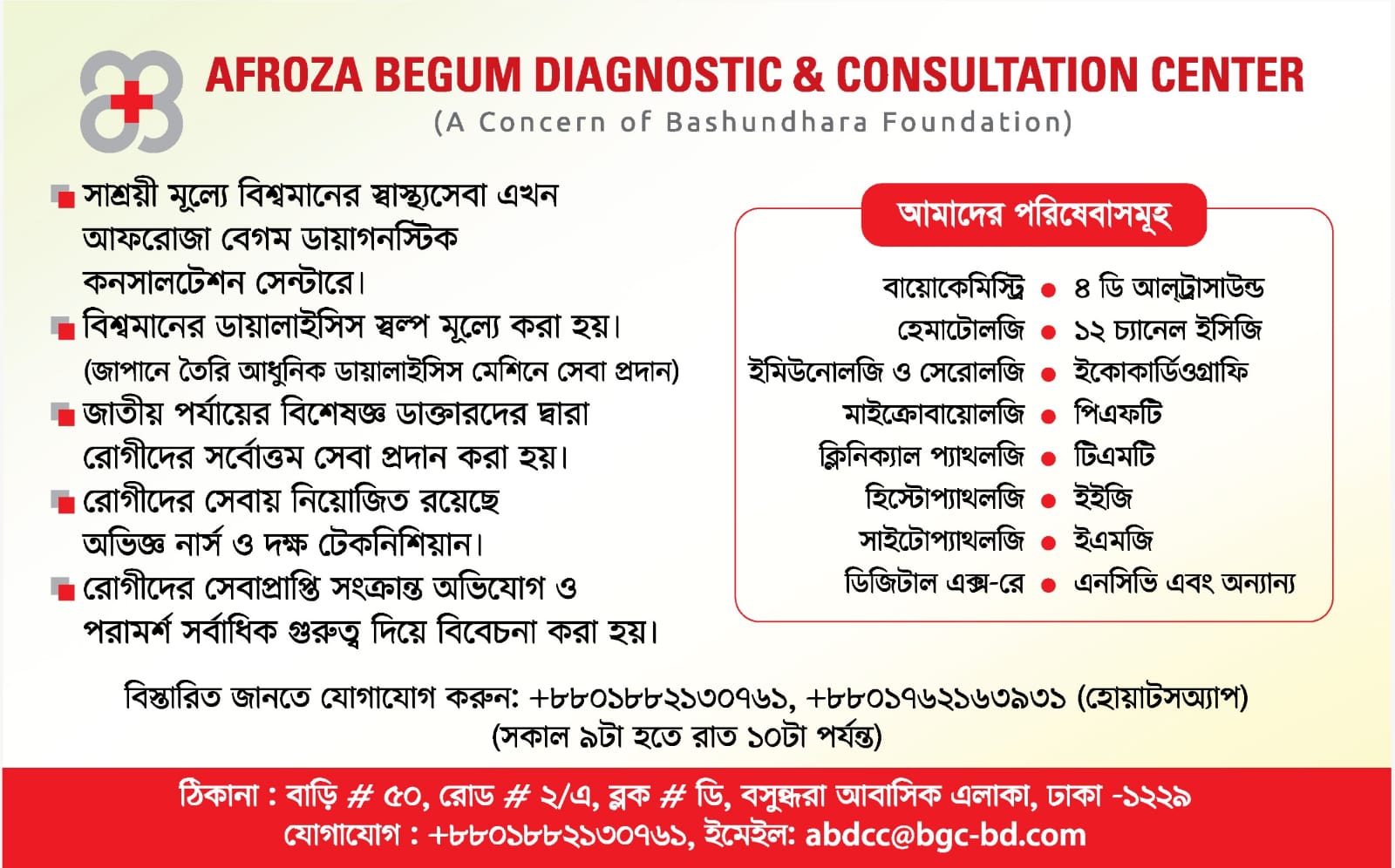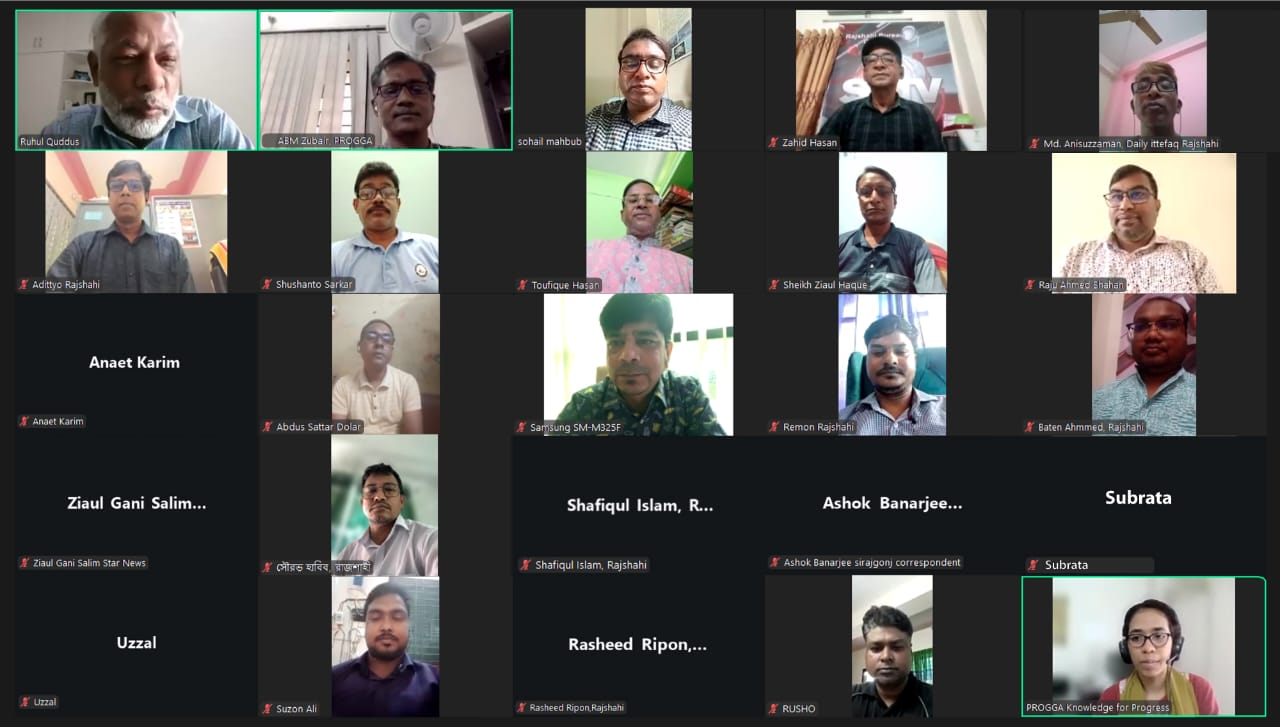
Staff Reporter : The prevalence of non-communicable diseases (NCDs) in Bangladesh is increasing at an alarming rate. NCDs are currently responsible for about 71 percent of all deaths in the country, with hypertension being one of the leading causes. One in four people suffers from hypertension, yet only one in seven has the condition under control through regular medication and necessary treatment. Ensuring the availability of hypertension medicines at all Community Clinics and Upazila Health Complexes through sustainable financing is essential.

These information and recommendations were highlighted at a virtual workshop for journalists titled “Hypertension Control in Bangladesh: Progress, Challenges and Way Forward”, on 10th September 2025. The workshop was organized by research and advocacy organization PROGGA (Knowledge for Progress) with support from Global Health Advocacy Incubator (GHAI). Twenty-two journalists from Rajshahi division working in print, electronic, and online media houses participated in the workshop.
It was informed at the workshop that 35 ministries and divisions of the government have recently signed a Joint Declaration on NCDs to strengthen inter-ministerial cooperation. The initiative aims to adopt and implement a coordinated approach to prevent and control NCDs. In addition, a report by the Health Sector Reform Commission has recommended the provision of essential medicines free of cost at the primary healthcare level.

Speakers at the workshop stressed that the insufficient allocation of 4.2 percent of the health budget to NCDs is causing persistent shortages of anti-hypertensive medicines in Community Clinics and Upazila Health Complexes. Sustained financial support is required to maintain an uninterrupted supply.

Muhammad Ruhul Quddus, Bangladesh Country Lead of GHAI and ABM Zubair, Executive Director of PROGGA attended the virtual workshop as discussants. PROGGA’s Director Md. Shahedul Alam and Coordinator Sadia Galiba Prova delivered presentations on hypertension control.

